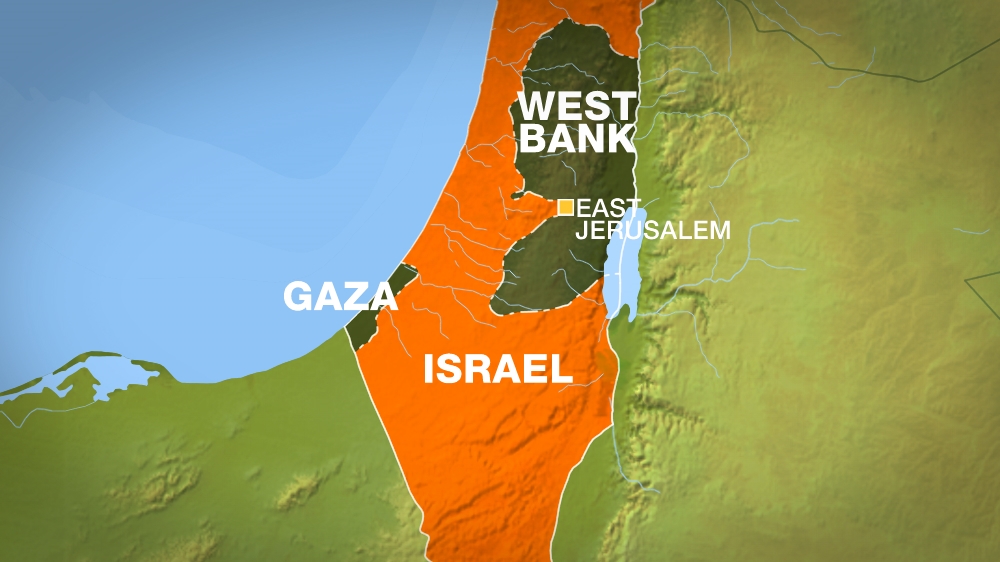PA reconsiders recognition of Israel
Palestine Liberation Organisation reconsiders its recognition of Israel until Israel recognises the State of Palestine.

The Ramallah-based Palestinian Authority (PA) is considering the “suspension” of its recognition of Israel, a senior Palestine Liberation Organization (PLO) official said Tuesday.
“There is no alternative for the Palestinians but to suspend their recognition of Israel,” Saeb Erekat, a member of the PLO’s influential Executive Committee, said in a statement.
Keep reading
list of 4 items‘Lone wolf’ or JI?: Jemaah Islamiyah confusion after Malaysia attack
Who was behind the DRC’s attempted coup? Were Americans involved?
Russia-Ukraine war: List of key events, day 816
The PA and the PLO — both of which recognize Israel — are both led by Palestinian President Mahmoud Abbas’s Fatah movement.
According to Erekat, Trump’s decision last December to recognize Jerusalem as Israel’s capital “was intended to isolate Jerusalem but has instead isolated the U.S.”
“We can only implement the [PLO] Central Council’s recommendation to suspend recognition of Israel until Israel recognizes the state of Palestine,” Erekat said.
PLO recommendation
Earlier this year, the Palestine Liberation Organisation’s (PLO) Central Council, the second-highest Palestinian decision-making body, has recommended revoking recognition of Israel until the latter recognises the State of Palestine in its 1967 borders, with East Jerusalem as its capital.
During a meeting in the occupied West Bank city of Ramallah late January 15, PLO, which is an umbrella of major Palestinian political parties, said it “assigned” its Executive Committee “to suspend recognition of Israel until it recognizes the State of Palestine on the 1967 borders and revokes the decision to annex East Jerusalem and expand and build settlements,” according to Wafa, the official Palestinian news agency.
In a final statement read after the meeting, the PLO also said that the Oslo Accords, signed with Israel in the early 1990s, “no longer stand”.
It added that it would renew its decision to “stop security coordination [with Israel] in all its forms” and called on all Arab states “to sever all ties with any state that recognises Jerusalem as the capital of Israel and transfers its embassy to it”.
But several Palestinian political parties expressed their reservations on the final statement, saying the language was vague.
Omar Shehadeh, a leader in the Popular Front for the Liberation of Palestine (PFLP) party, said there was no clear decision to end the Oslo Accords, withdraw recognition of Israel and stop security coordination. He added that assigning the PLO’s Executive Committee to take such actions could take some time.
The meeting comes following a decision in December by US President Donald Trump to recognise Jerusalem as the capital of Israel and to move the US embassy from Tel Aviv to Jerusalem.
Breaking with decades of US policy that favoured a two-state solution, Trump’s declaration dealt a blow to the Palestinian leadership, which for more than two decades has unsuccessfully attempted to establish a state on the West Bank, Gaza Strip and East Jerusalem.

The PLO meeting in Ramallah was organised to lay out the Palestinian strategy to confront the US in the wake of its Jerusalem decision.
At the start of the two-day meeting, Palestinian President Mahmoud Abbas slammed Trump’s peace proposal, saying: “Now we say ‘No’ to Trump, we won’t accept his plan – we say the ‘deal of the century’ is the slap of the century,” referring to the US president’s pledge to achieve the “ultimate deal”.
In the final statement, the PLO said it would find “other international pathways under the auspices of the United Nations to sponsor solving the Palestinian cause”.
After officially recognising Israel’s existence in 1988, the PLO and Israel signed the Oslo Accords in 1993 and 1995 meant to lead to the creation of an independent Palestinian state through the establishment of an interim Palestinian government – the Palestinian Authority.
The Oslo deals also gifted Israel complete control of the Palestinian economy, civil and security matters in over 60 percent of the West Bank, and introduced the controversial security coordination between Israel and the PA.
The PA says the only answer to more than 70-year-old conflict is the establishment of a Palestinian state with East Jerusalem as its capital.
But since the signing of the Oslo Accords, the Israeli occupation of the Palestinian territories has only intensified, making it difficult for Palestinians to envision such a solution.
Currently, between 600,000 to 750,000 Israeli citizens – or 11 percent of the Israeli population – live in the occupied Palestinian territories – encouraged by the right-wing Israeli government which offers them incentives to move there.
Guarded by heavily armed Israeli soldiers, they have taken up large swaths of Palestinian private land.